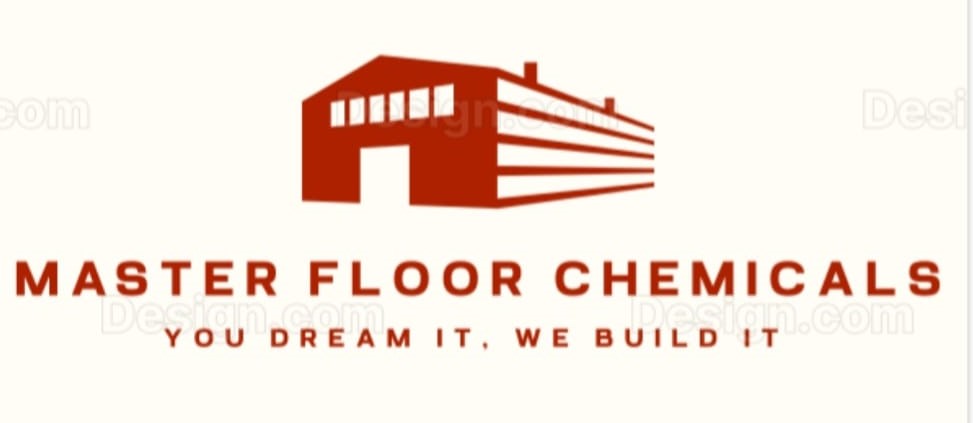When it comes to industrial and commercial flooring, durability isn’t just a preference—it’s a necessity. Floor hardeners play a critical role in transforming ordinary concrete slabs into robust, abrasion-resistant surfaces suitable for warehouses, parking garages, industrial plants, and more. In this guide, we’ll explore what floor hardeners are, how they work, why they matter, and the latest innovations shaking up the flooring world.
🌟 What Are Floor Hardeners?
Floor hardeners are dense, wear-resistant materials—typically cementitious or metallic powders—that are applied to freshly poured concrete. As the surface cures, these hardeners become integral to the slab, enhancing its abrasion resistance and overall durability. They’re available in two primary forms:
- Non-metallic types, ideal for high-strength performance without added metallic sheen.
- Color floor hardeners, which combine durability with decorative aesthetics.
Master Floor Chemicals offers both variants, designed to deliver optimized results across various industrial environments.
💪 Key Benefits of Floor Hardeners
- Exceptional Abrasion Resistance
Heavy duty environments with forklift traffic, foot traffic, or machinery demand surfaces that resist wear. Hardeners reduce surface erosion and maintain performance over time. - Long-Lasting Protection
Once absorbed into the concrete matrix, floor hardeners create a unified surface that withstands stress, impact, and chemical exposure. - Cost-Efficiency & Low Maintenance
Avoid frequent resealing or costly repairs. Hardeners reduce the need for frequent upkeep by extending service life and cutting lifecycle expenses. - Aesthetic Versatility
Color floor hardeners add visual appeal to performance floors. You can customize industrial spaces with vibrant, stain-resistant colored coatings .
📍 Ideal Applications
- Warehouses & Distribution Hubs: Floors here undergo constant strain—hardeners mitigate wear from heavy axle loads and pallet jacks.
- Manufacturing Facilities: Floor hardeners stand up to lifting equipment, chemical spills, and production wear.
- Parking Structures & Garages: Original concrete surfaces suffer from abrasion and vehicular traffic; hardened floors resist damage.
- Chemically Loaded Environments: Non-metallic formulations negate corrosion and improve resistance to mild acids and alkalis.
🔍 Latest Innovations in Floor Hardening
The floor hardening industry is evolving rapidly. Here’s what’s currently trending :
- Eco-Friendly & Low-VOC Formulas: With reforms in sustainability and indoor air quality, manufacturers now offer low-VOC, water-based, and LEED-compliant products to reduce environmental and health impacts.
- Hybrid Coating Systems: Combining the resilience of epoxy with the flexibility of polyurethanes, these hybrids offer UV resistance and mechanical strength in one package.
- Fast-Cure Technologies: For demanding commercial builds, polyaspartic or rapid-setting concrete overlays enable flooring completion—and reopening—in as little as 24 hours.
- Aesthetic Functionality: Polished concrete, metallic epoxy, and colored hardeners cater to spaces where presentation matters, like showrooms or visitor-facing production zones.
Master Floor Chemicals’ blog underscores these trends and emphasizes its alignment with emerging market demands instagram.com+2masterfloorchemicals.com+2masterfloorchemicals.com+2.
🛠️ How to Choose the Right Floor Hardener
Choosing the right hardener depends on several factors:
- Project Requirements
Identify whether your top priority is industrial durability or decorative appeal. Flooring with foot and vehicle traffic may need metallic hardeners; public-facing floors benefit from colored, decorative options. - Environmental & Safety Standards
For indoor installations, choose low-VOC and LEED-compliant products to ensure compliance and safer work environments. - Curing Time & Construction Schedule
Opt for rapid-setting systems if project timelines are tight and quick turnover is essential. - Maintainability & Longevity
Determine future maintenance expectations. Surface treatments like densification coatings seal hardeners and simplify upkeep.
🔄 Floor Densification: An Ideal Companion
Floor densification is often paired with hardener treatments. This process involves applying reactive compounds (typically lithium silicates) that fill microscopic concrete pores, enhancing hardness and sealing ability. Benefits include:
- Improved dust control
- Increased load-bearing capacity
- Enhanced stain resistance
Master Floor Chemicals frequently bundles floor densification with hardening solutions to deliver holistic flooring systems masterfloorchemicals.com.
🌍 Sustainability & Industry Impact
Sustainability isn’t a trend—it’s a central concern. Flooring solutions now prioritize:
- Recycled raw materials
- Reduced CO₂ emissions
- Improved indoor environmental quality
The demand for greener products is reshaping manufacturing. Sustainable hardener solutions support regulatory compliance while enhancing brand reputation and operational health .
🚀 Final Thoughts: Building Smarter and Stronger
Floor hardeners aren’t merely surface treatments—they’re strategic investments. Whether in a busy warehouse, manufacturing plant, or garage, a properly hardened and densified floor offers:
- Long-term durability
- Lower maintenance
- Enhanced safety and appearance
- Environmental compliance
By staying ahead of trends—embracing sustainability, aesthetic capability, and rapid-cure technologies—you position your builds for success, both now and in the future.
Master Floor Chemicals delivers tailored solutions that leverage advanced hardener technology, hybrid coatings, and densification strategies. To ensure optimal floor design from concept to completion, consider expert consultation to match the right formulation with your project’s needs.

